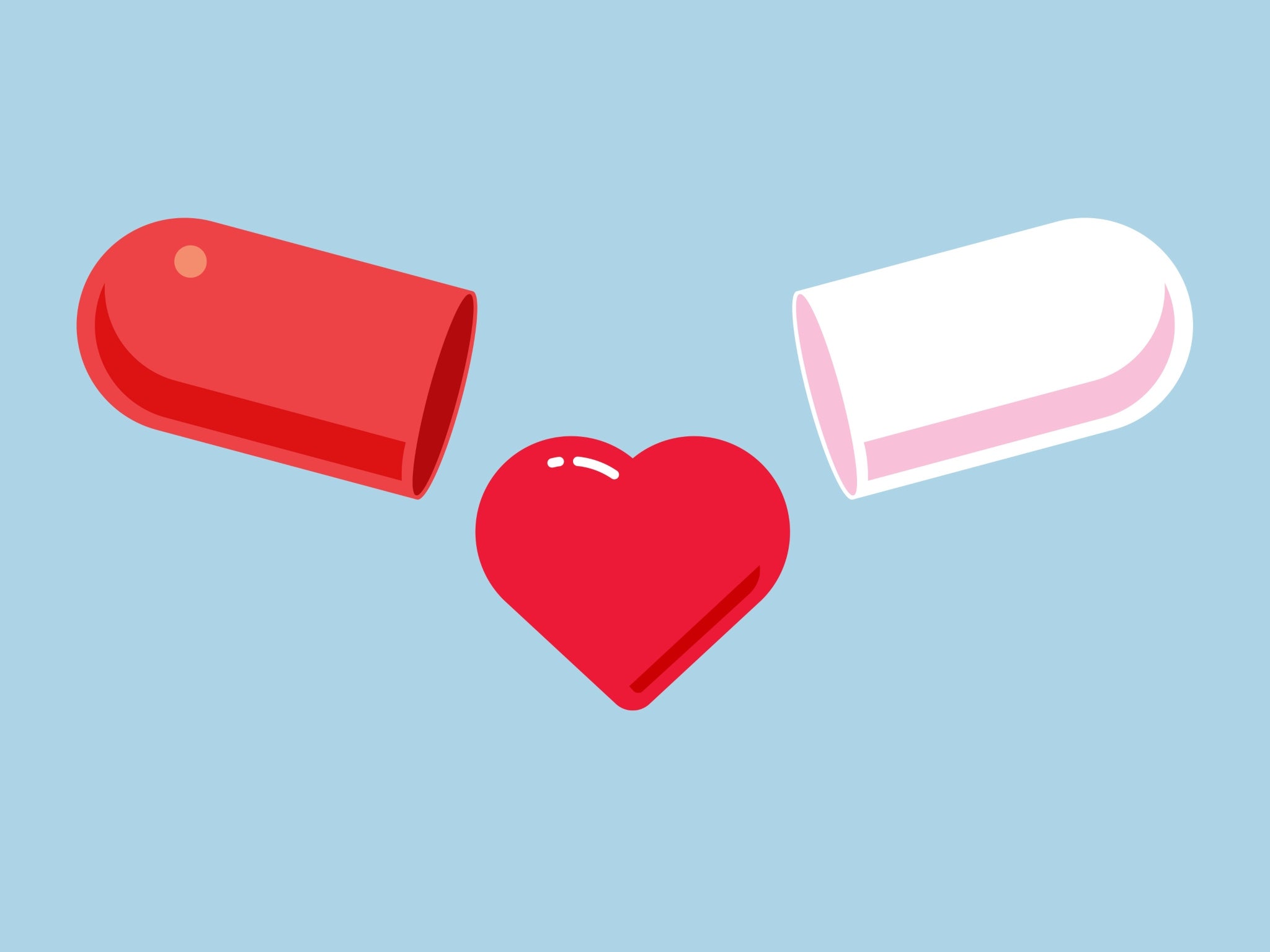Love ‘drug’ to save failing marriages could soon be available
An Oxford University academic says the drug mimics the chemicals that help you fall, and stay, in love

A new drug that could help to save failing marriages could be available in “three to five years”, an Oxford University academic has said.
Dr Anna Machin, an evolutionary anthropologist at Oxford University, spoke at the Cheltenham Science Festival and said that there are four chemicals in the human brain that explain why we feel love: dopamine, serotonin, beta endorphin and oxytocin.
Machin said during the festival that there is “now enough known about brain chemistry” that certain chemicals could be prescribed to “enhance your abilities to find love or to increase the possibility that you will stay in love when it is getting a bit tricky”.
“One of the frontiers of love research commercially - because can you imagine how much money you would make - is in exploring possible love drugs,” Machin said, according to the Telegraph.
“There’s lots of ethical questions about love drugs, that love drugs are certainly on the horizon. And there is certainly research going into them.”
Machin added that “love drugs” used in couples therapy could be available in “three to five years”.
She said that oxytocin is “popular” with commercial companies and could help people “become more confident when dating and help them fall in love”.
Machin likened oxytocin to having a glass of prosecco before a night out for giving you a boost of confidence.
“Oxytocin could be available within a decade for people to squirt up their nose before they go out on a Saturday night, at the same time as having a glass of prosecco,” she explained.
“MDMA, for people who go clubbing, makes them feel like they love everyone else in the room. But users also have a surge in empathy, so it could be used to help those struggling in their marriage.
“There are more ethical questions surrounding MDMA, so that is likely to take longer.”
Machin, who is the author of Why We Love: The New Science Behind Our Closest Relationships, also explained why these “love” chemicals can make us feel so rubbish after a break up.
“Beta endorphin is an opiate. It is produced by your body and, just like heroin, it is addictive,” she said.
That’s actually the reason why when you get dumped it feels awful because you are going into opiate withdrawal,” she said.
“Obviously, if you’re dumped, you don’t get a slow withdrawal and that is why it is so unbelievably physiologically and psychologically painful when a relationship ends in that way.
“You go from existing at quite a nice high level of all these lovely neuro chemicals and suddenly it is gone, you’ve gone full cold turkey, and all those lovely chemicals disappear and that’s why being dumped is so physiologically painful, actually painful, it can feel like your heart is breaking.”
She added that approximately one in 50 people have a specific gene which can make them more sensitive to break ups.
She explained: “Some poor people who carry a version of the new opioid receptor gene, feel social rejection much, much more powerfully than the rest of us. When they get dumped it is like a million times more painful than the rest of us.”
Join our commenting forum
Join thought-provoking conversations, follow other Independent readers and see their replies
Comments
Bookmark popover
Removed from bookmarks